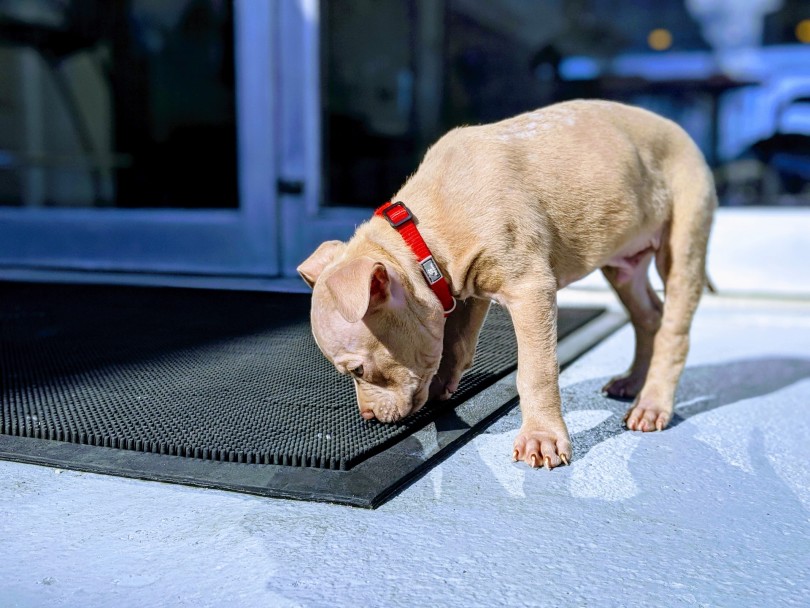22 Apr 24
Lab ChatLabworx
The Global News Source for the World of Science and Chemicals
Can dogs sniff out COVID-19?
11 August 2020
Lab Chat
The United Arab Emirates has become the first nation to employ sniffer dogs in testing visitors to Dubai International Airport (DXB) for coronavirus. Operating in much the same way that canines are already widely used to detect narcotics and explosives, the sensitive noses of the dogs have been trained to recognise subtle changes in the body odour of COVID-19 sufferers.
Those behind the scheme say that it is an efficient and cost-effective way of testing large numbers of people quickly. With that in mind, it’s an ideal fit for one of the world’s busiest airports, which normally handles more than 1,000 flights per day and welcomes almost 90 million passengers through its doors each year.
Accuracy and efficiency
A canine’s nose is home to more than 300 million scent receptors. For context, the human nose has just five million, or 60 times less, meaning man’s best friend is capable of sniffing out trouble far more effectively than man is himself.
“We know that other respiratory diseases (like COVID-19) change our body odour so there is a very high chance that dogs will be able to detect it,” explained Professor James Logan, an expert of disease control. “This new diagnostic tool could revolutionise our response to COVID-19 in the short term, but particularly in the months to come, and could be profoundly impactful.”
According to studies, the canine sniff test is more accurate and far less invasive than traditional PCR swab tests, which take samples from the nose and throat. Research carried by the Emirati government indicated that the dogs could detect coronavirus infection with a 92% accuracy rate, while PCR tests have returned false negatives in 20% of cases in the past.
Immediate diagnosis on command
The dogs involved in the project are specially trained to recognise the chemical imbalances caused by COVID-19 which lead to changes in body odour that are imperceptible to the human nose. This is a particularly promising tool in the fight to stop the spread of the disease, given that as many as 40% of coronavirus cases are asymptomatic.
The system works by collecting a sample of the scent of all passengers who arrive at DXB. That sample is then taken to another, contaminant-free room, where the dogs sniff it through a funnel. If the dog detects the presence of the virus, they have been trained to sit down immediately. The passenger in question is then isolated and given a conventional PCR test to confirm the diagnosis.
The whole process is expected to take mere minutes, while British scientists believe that a single dog could theoretically test as many as 250 people in an hour. If air travel is to return to its former glory, the dogs could represent an ideal method of processing large numbers of people quickly. For now, the trial at DXB is ongoing.
DOWNLOAD PDF

2 Day Seminar Program
@ ArabLab+ 2024
24 & 25 September 2024
Your stay in Dubai
Labkit
Product News
Chemkit
Product News
Thinking about exhibiting at ARABLAB 2024? Watch our video to find out more.
Join the world’s leading organisations…
Get in touch and stay in touch…
Join our mailing list and receive the ARABLAB newsletter and event updates.





















